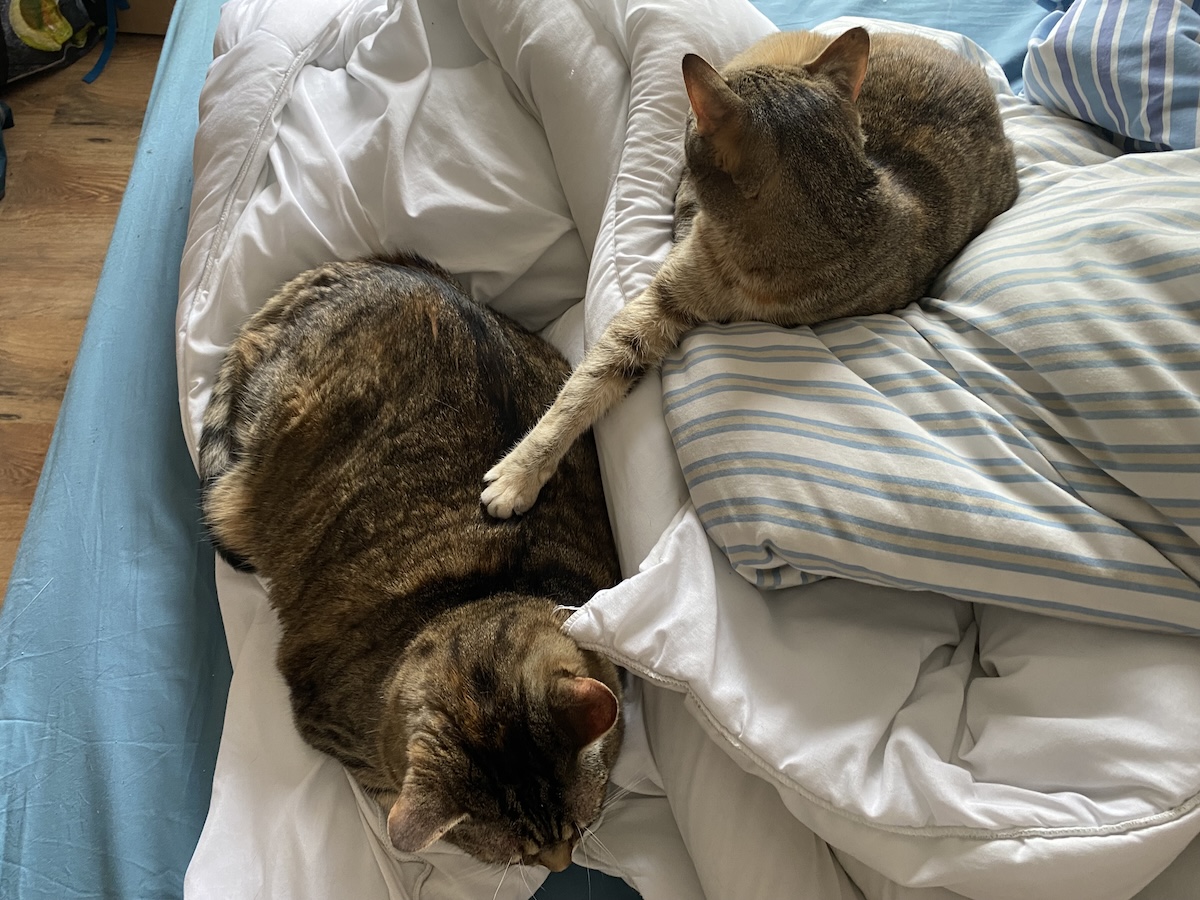
The information is current and up-to-date in accordance with the latest veterinarian research.
Learn more »
Hi, I’m Dr. Lauren! Read my introduction to learn more about me and my two adventurous cats, Pancake and Tiller.
As a vet, this is a common time of year that I get all sorts of complaints about itchy cats. The warm weather leads to plants and trees that blossom, increasing the number of pollens and other allergens, insect levels skyrocket, and cats become itchy. But a cat doesn’t have to lose hair or be actively scratching to mean they are itchy. Sometimes cats show itching in very unexpected ways… let’s take a look.
Signs of an Itchy Cat
Typical signs of itchiness include the obvious like the physical act of scratching and hair loss. A less well known sign is the “itch response” -something we were commonly taught about in vet school in relation to sheep, but that I also observe in many itchy cats in clinics. If a cat has general itchiness (the Latin term is pruritus) then scratching them or petting them on the top of their butt can elicit a chewing response. Odd one!
Hair loss, and scabs, can also indicate that physical scratching is traumatizing the hair coat and skin. But you may not realize that an itchy cat might also only present as a cat that is frequently grooming. Now, certainly most cats will spend a fair amount of time grooming their haircoat. But itchy cats often lick or groom when they are itchy, rather than outright scratching, like a dog may do. Try to look at the times your cat is grooming, if you are trying to decide if it is normal or not.
Normal grooming behavior happens after meals, or before a nap. Itchy cats often groom at random times- they will be walking through a room, and then stop to do a brief grooming session. Or you pet them, and they suddenly have a frenetic cleaning session. They will also groom in front of strangers or in unusual places- where they otherwise wouldn’t and shouldn’t feel entirely relaxed.
Common Causes of Feline Itch
Just like people, cats can also get allergies. Fleas are a common one that many cats experience. Food is another, especially to proteins like beef and fish. But ectoparasites, like fleas, and skin mites, can also cause itch even in non-allergic cats.
Ways to Help an Itchy Cat
It’s always best to start with a visit to your cat’s vet. Bring photos and videos of anything questionable, as sometimes they can be hard to see in the clinic, or your pet may not display the behavior.
Ensure, too, that your cat is up to date on flea and worm treatments. (Some tapeworms can cause extremely itchy behinds for some patients! And fleas are a main cause of feline tapeworms!) Also remember that even a small amount of fleas can cause some cats to be very itchy, if they are allergic. And if that itchy cat has a tendency to groom, they may ingest all evidence of fleas before they can be detected. Therefore, an ounce of prevention really is worth a pound of cure!
Your vet can also guide you on other treatments that may help your cat, which can include diet trials to detect food allergies, and itch suppressing medications.
Generally, itch is very treatable in cats, so never be afraid to scratch that itch, so to speak, and dig deeper into the issue by seeking professional help.






